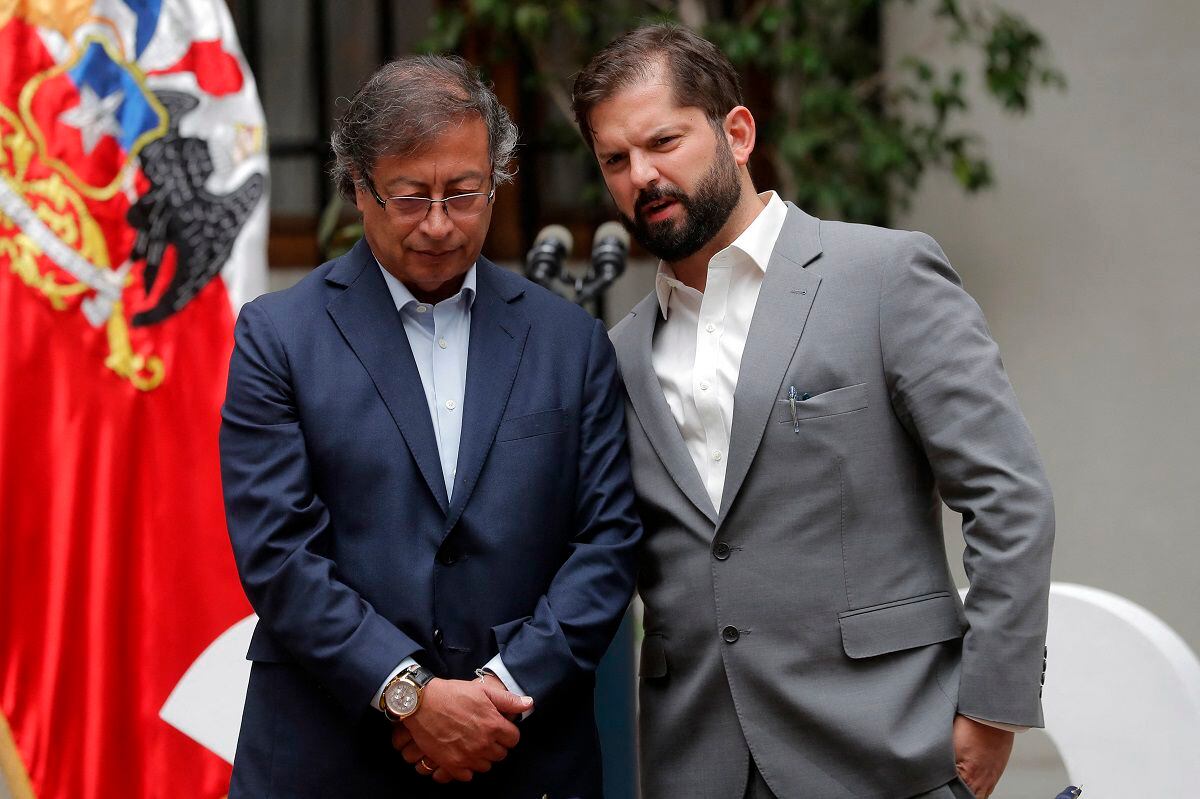
The leaders of the Latin American left in power are encountering serious difficulties in carrying out the ambitious structural reforms of their governments. The weakness of the political support that allowed them to reach power and the fragmentation of parliamentary representation are the main reasons, according to experts consulted by EFE.
In ChiliGabriel Boric has not been able to get Congress to approve the tax reform and, what is more serious, the draft magna carta emanating from the Convention that was to replace the Constitution emanating from the dictatorship of Augusto Pinochet.
Colombian President Gustavo Petro is also having trouble pushing through health, labor and pension reforms. The distrust of the parliamentary groups that supported him has forced him to carry out a profound restructuring of his cabinet, the second since he assumed the Presidency, just nine months ago.
And in MexicoAndrés Manuel López Obrador has also failed to carry out the militarization of the National Guard, the reform of the electoral body and the modification of the regulatory framework on energy that he proposed.
The reasons why the leaders of the Latin American left are finding it so difficult to implement basic elements of their political programs are diverse.
THE “OVERNIGHT VOTE”
But except in the case of the draft of the Chilean Constitution, mostly rejected by a citizenry dissatisfied with the text submitted to a plebiscite, the common denominator of these setbacks is the lack of political support from the legislature, a phenomenon that the political scientist and jurist Argentinian Daniel Zovato called “the overnight vote”.
“I lend you the vote during the night so that you win the election and then I take it back in a timely manner”, describes the regional director of the International Institute for Democracy and Electoral Assistance (IDEA).
“The big issue is the governance of presidential systems in contexts of political fragmentation”, he details.
In Mexico, the president Andres Manuel Lopez Obrador spearheaded what he called “the fourth transformation”, but the structural reforms of key sectors that he proposed did not go ahead due to legislative and, in some cases, even judicial rejection.
Among the latter is the militarization of the National Guard, knocked down by the Supreme Court for considering that it is a civil security organization that could not be attached to the Ministry of Defense.
Likewise, the attempt to eliminate the institution in charge of organizing the voting processes, the National Electoral Institute (INE), generated mobilizations of rejection and criticism from the opposition and the judiciary, on the understanding that it could affect the development of the presidential elections in 2024
The reform of the energy sector, which would have benefited the state companies Petróleos Mexicanos (Pemex) and the Federal Electricity Commission (CFE), and the creation of the Institute of Health for Well-being suffered the same fate.
In ColombiaPresident Gustavo Petro Nor has it been easy in Congress, where he does not have the majority necessary to win approval for his ambitious social reforms.
The coalition that he had managed to form for that purpose was declared broken by himself a week ago, after verifying that his project to reform the health system aroused strong resistance in Parliament.
The government machinery, which worked in the first six months of his term, has stumbled in the discussions on health reform, which have finally precipitated a cabinet crisis that has cost seven of the eighteen ministers their posts, including they the Treasury, the Interior and Health.
With these changes, Petro seeks to rebuild his support base in Congress and will try to negotiate separately with each senator and representative to the House, and not with the entire bench, as up to now.
OPPOSITION CONGRESSES
Except in Mexico and Venezuelapresidential elections in Latin American countries provide for a second round if none of the candidates achieves a sufficient majority in the first round.
And although the candidate who manages to attract the vote of the electorate that supported the candidates who did not go to the second round usually wins the ballot, the truth is that “Congress was constituted on the first vote.”
This is the case of gabriel boric, Gustavo Petro and Lula da Silva, who prevailed “with the votes given to him by those who did not want his opponent to win, but who are not from his party,” Zovatto describes.
“They reach the presidency without their own majority in Congress with a coalition that is a sort of Noah’s ark, due to the high degree of heterogeneity of those who make it up”.
Post-election supportLater, they are not enough to have their own majority in Congress, and if they manage to have it, it is very difficult for them to maintain it, because their proposals for structural reforms end up breaking the coalition”, considers the regional director of IDEA.
“And since they can’t quickly deliver on their promises of change, they start to wear out quickly.”, concludes the Argentine political scientist.
Source: EFE
Source: Gestion
Ricardo is a renowned author and journalist, known for his exceptional writing on top-news stories. He currently works as a writer at the 247 News Agency, where he is known for his ability to deliver breaking news and insightful analysis on the most pressing issues of the day.












